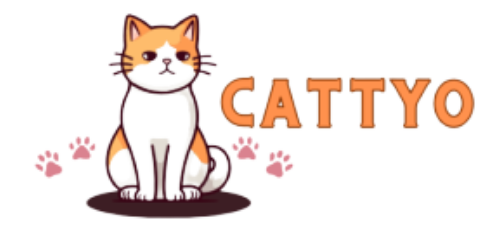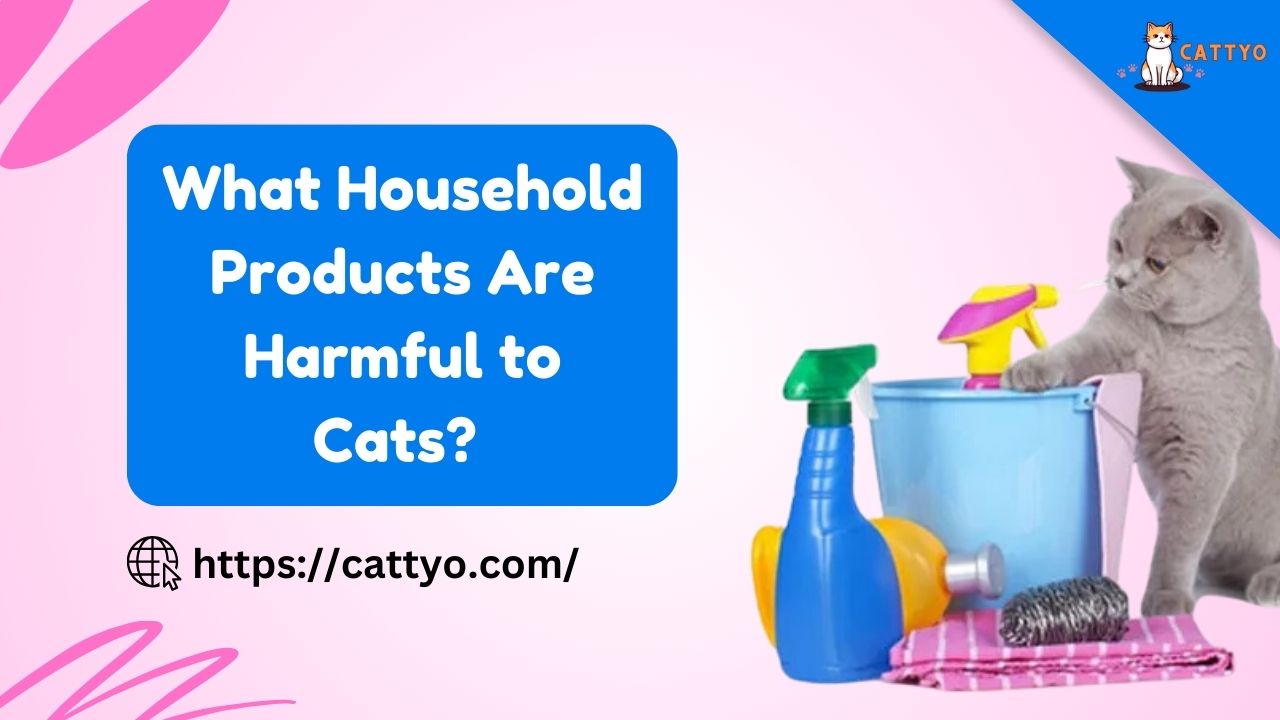If you’re a cat owner, you know that cats are curious creatures. They’ll sniff, paw, and sometimes even taste whatever catches their eye (or whiskers).
But as much as we love our feline friends, our homes are often filled with things that can be dangerous to them.
So, what everyday household products should you keep out of reach to ensure your kitty stays safe? Let’s dive in and uncover the truth about some surprising dangers lurking around the house.
What Household Products Are Harmful to Cats?
1. Cleaning Products – They Smell Nice, But They’re Dangerous!
Think about it: you wipe down the counters with your favorite lemon-scented cleaner, and everything smells fresh. Your cat?
Not so much. Many common household cleaning products, like bleach, ammonia, and multi-surface sprays, are toxic to cats if ingested or if they come in contact with their skin.
Cats love to clean themselves, so even if you wipe down a surface, there’s still a risk they’ll lick it off later.
Real talk: I once had a friend whose cat, Mr. Whiskers, got a little too curious and decided to investigate a freshly cleaned bathroom sink.
Let’s just say, it wasn’t pretty. A quick vet visit later, and they were advised to use natural, cat-safe cleaning supplies from then on.
2. Plants – The Green Killers
Now, who doesn’t love a little greenery around the house? But hold up—before you start decking out your place with cute succulents or hanging ivy, remember that some plants are downright deadly to cats.
Lilies, for instance, are notorious for causing kidney failure in cats if even a small part is ingested. Other offenders include aloe vera, poinsettias, and the ever-popular fern.
Here’s an idea: if you love plants but have a feline, consider getting some cat-safe options. Spider plants, catnip, and wheatgrass are all fine for your kitty to chew on. Just make sure to do your research before buying!
3. Human Food – A Little Bite Might Not Be Worth It
Alright, we’ve all been there. You’re sitting down to a delicious snack, and your cat gives you that look—you know the one.
They’re silently begging for a taste. You’re tempted, but don’t give in! Some human foods are a big no-no for cats.
Chocolate? Toxic. Onions and garlic? Even worse. And grapes or raisins? Can cause kidney failure.
While it’s hard to resist those big, soulful eyes, sharing your lunch with your cat could lead to some pretty serious health issues. So, be strong, and remember—your cat is better off with their specially formulated food!
4. Essential Oils – Sweet Scents, but Deadly to Cats
Essential oils are all the rage. Lavender, eucalyptus, peppermint—you name it. But these pleasant scents are actually dangerous for cats.
Their livers can’t metabolize these oils like humans can, which means even a small amount of essential oil can cause them to experience nausea, drooling, or worse.
I’ve heard people swear by diffusers for calming their cats, but it’s just not worth the risk. Instead, opt for cat-friendly calming products like pheromone sprays or a good old-fashioned cuddle.
5. Pest Control Products – The Silent Threat
If you’re using any kind of pest control in your home, whether it’s sprays, traps, or powders, you need to be extra cautious.
Many of these contain harmful chemicals that are toxic to cats. Even seemingly harmless rodent bait can be a serious risk if your kitty decides to nibble on it or find a trapped critter.
For me, the best solution has always been to use safer, non-toxic pest control methods. If you can, go for natural repellents like peppermint oil or diatomaceous earth. Your cat (and the environment) will thank you.
Table Of Common Household Products and Their Dangers to Cats
| Household Product | Potential Danger to Cats | Alternative Options |
|---|---|---|
| Bleach | Irritates skin, eyes, respiratory system | Natural cleaners (vinegar, baking soda) |
| Lilies | Causes kidney failure if ingested | Spider plant, cat grass |
| Chocolate | Contains theobromine, which is toxic to cats | Cat-safe treats |
| Essential Oils | Can cause liver damage, poisoning | Use pheromone sprays or calming collars |
| Pest Control | Toxic chemicals can harm cats if ingested | Non-toxic pest control methods |
FAQs About What Household Products Are Harmful to Cats?
Q: What’s the most common household item that is dangerous for cats?
A: In my experience, cleaning products and certain plants are the biggest culprits. Bleach, ammonia, and lilies can be especially dangerous, so it’s best to stay informed and keep these items well out of your cat’s reach.
Q: Can my cat eat small amounts of chocolate or onions?
A: Even small amounts can be harmful, so it’s never safe to feed your cat these foods. Chocolate contains theobromine, and onions contain compounds that can damage your cat’s red blood cells. Better to avoid it completely.
Q: Are there any cat-friendly alternatives to scented candles or essential oils?
A: Yes! You can use pheromone diffusers like Feliway, which can help calm your cat without the risk of essential oils. Also, natural scents like chamomile or valerian can be safer options.
Final Words.
Living with a cat means living with an extra layer of responsibility. It’s not just about keeping their food dish filled or making sure they have plenty of scratching posts.
It’s about being aware of the everyday items that could be hazardous to their health, even when you least expect it. So, what can we take away from all this?
Keep your cleaning products locked away, choose plants wisely, and never let your cat nibble on human food or essential oils.
Your cat will be safer—and so will your peace of mind. It’s all about balance. Cats bring so much joy to our lives, and it’s our job to make sure their environment is safe.
So, next time you’re about to grab that bottle of bleach or give them a nibble of your chocolate, just think—maybe it’s best to say “no” for their sake.





